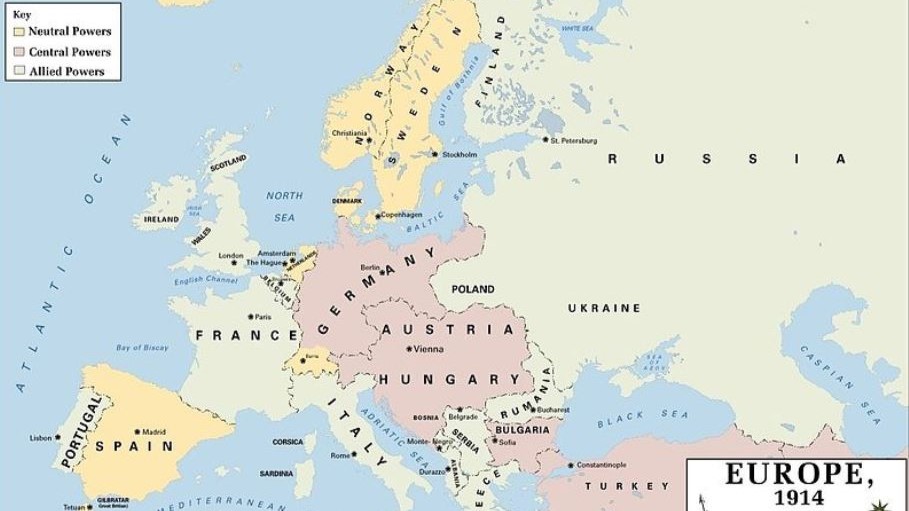Imagine a world where Britain remained neutral in World War 1. This single decision could have drastically altered the course of history.
The absence of British forces on the Western Front would change military strategies, political dynamics, and economic conditions worldwide.
Understanding this alternate scenario helps us appreciate the complex web of decisions that shaped our current world.
What if Britain remained neutral in World War 1? Let’s explore the potential impacts and the ripple effects of such a pivotal change.
- 1. Britain's Involvement in World War 1: An Historical Context
- 2. Economic and Political Consequences of British Neutrality in World War 1
- 3. Military Outcomes for Europe if Britain stayed Neutral
- 4. Colonial Implications of British Neutrality in World War 1
- 5. U.S. Involvement in World War 1
- 6. Long-Term Effects
- 7. Ireland in a World of British Neutrality
- 8. Germany Ascendant in a New European Order
- 9. Final Thoughts: Was Britain Right to enter World War 1?
- Further Reading
1. Britain’s Involvement in World War 1: An Historical Context
Pre-War Alliances and Tensions
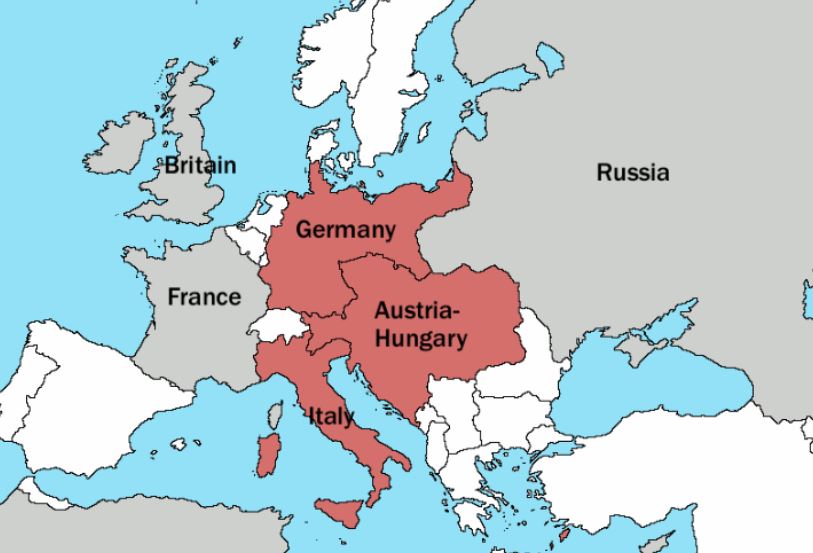
In the early 20th century, Europe was a powder keg of alliances and rivalries.
The Triple Entente, including Britain, France, and Russia, countered the Triple Alliance of Germany, Austria-Hungary, and Italy.
These alliances aimed to maintain a balance of power but also created intricate webs of obligations that could turn local disputes into global conflicts.
Britain’s Global Standing
At the turn of the century, Britain was a dominant global force. It had extensive colonial holdings and a powerful navy.
Its empire spanned continents, securing crucial resources and trade routes.
This vast colonial network profoundly influenced Britain’s geopolitical calculations and economic interests. It also shaped its approach to European affairs.
The British Empire’s economic interests and need for global stability were intricately tied to its diplomatic maneuvering in Europe.
Critical Decisions Leading to Involvement World War 1: Edward Grey
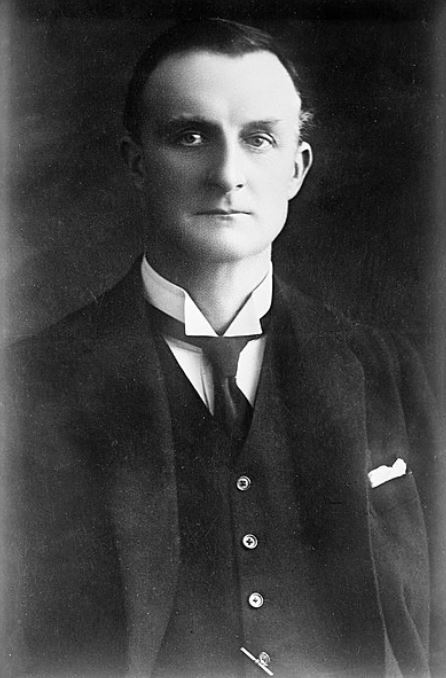
The lead-up to World War 1 has been a topic of extensive historical debate, with much focus on Edward Grey’s diplomacy.
Edward Grey was the British Foreign Secretary. He played a pivotal role during this critical period.
Historians have long questioned whether his actions could have prevented the war or if conflict was inevitable.
Misunderstanding with Germany
A significant point of contention was the misunderstanding between Edward Grey and the German Ambassador, Prince Karl Max Lichnowsky, regarding British neutrality.
On August 1, 1914, Lichnowsky sent a telegram to Berlin suggesting that Grey had proposed Britain would remain neutral if Germany did not attack France. This message elated the Kaiser, who was focused on supporting Austria-Hungary against Russia.
However, King George V quickly clarified to Berlin that Grey’s proposal hinged on Germany not attacking both France and Russia, not just France alone.
Diplomatic Missteps
The core question remains whether Grey communicated his stance clearly or if Lichnowsky intentionally misinterpreted the proposal to avoid British involvement in the war.
Grey’s Aversion to War
Despite these criticisms, there is little doubt that Edward Grey detested the prospect of war. Even as the cabinet leaned towards intervention, Grey sought to pressure France into backing down to prevent a larger conflict.
Following the assassination of Archduke Franz Ferdinand on June 28, 1914, Grey faced the challenging task of navigating a deeply divided British cabinet. His goal was to find a diplomatic solution that could placate all factions and avert war.
The Assassination and Rising Tensions
By August 1, as cabinet talks reached a breaking point, Edward Grey still hoped to avoid a general war. He telegraphed the British Ambassador to Berlin, Edward Goschen, expressing a belief that a brief respite could still secure peace. Despite his efforts, the cabinet remained divided on Britain’s stance.
The Belgian Factor
A crucial turning point was Germany’s refusal to guarantee Belgian neutrality, a principle Britain was committed to upholding.
This refusal shifted Grey’s approach significantly.
After Germany declared war on Russia, Edward Grey allowed the mobilization of the British fleet.
He informed the French Ambassador, Paul Cambon, that Britain would not permit the German fleet to enter the English Channel.
British Intervention
On August 3, Germany violated Belgian territory, making British intervention unavoidable.
Edward Grey’s efforts to maintain peace effectively ended as Britain prepared to enter the conflict. Despite Grey’s anti-war stance, the strategic and legal commitments to Belgium’s neutrality and the broader balance of power in Europe necessitated British involvement.
2. Economic and Political Consequences of British Neutrality in World War 1
Economic Repercussions
The British economy was heavily geared towards wartime production and trade with Allied nations. The decision to remain neutral would have spared the British economy from the strains of wartime expenditures, allowing resources to be redirected towards economic growth and domestic development.
However, the impact on trade would have been significant.
Britain’s maritime trade routes were vital for both imports of raw materials and exports of manufactured goods.
Neutrality might have disrupted these routes due to naval blockades or restrictions imposed by warring parties, affecting British trade and industrial output.
On the other hand, avoiding wartime destruction and disruptions could have potentially stimulated economic growth in the long term.
Political Reactions
The government and public opinion were divided over intervention in the war, with advocates for both neutrality and intervention.
Neutrality would have appeased pacifist sentiments and avoided the divisive mobilization of resources and manpower for war efforts.
However, Britain’s neutrality would not have gone unnoticed in Europe and beyond.
The decision could have shifted the balance of power, influencing alliances and diplomatic relations.
It might have prompted reactions from other nations, particularly those aligned with the Allies, who relied on British support. The absence of British military and economic contributions could have strained relations within the Triple Entente and affected perceptions of Britain’s reliability as an ally.
3. Military Outcomes for Europe if Britain stayed Neutral
War Dynamics on the Western Front
Had Britain opted for neutrality in World War 1, the dynamics of battles and military strategies would have unfolded differently across Europe.
The absence of the British Expeditionary Force (BEF) on the Western Front would have shifted the balance of power.
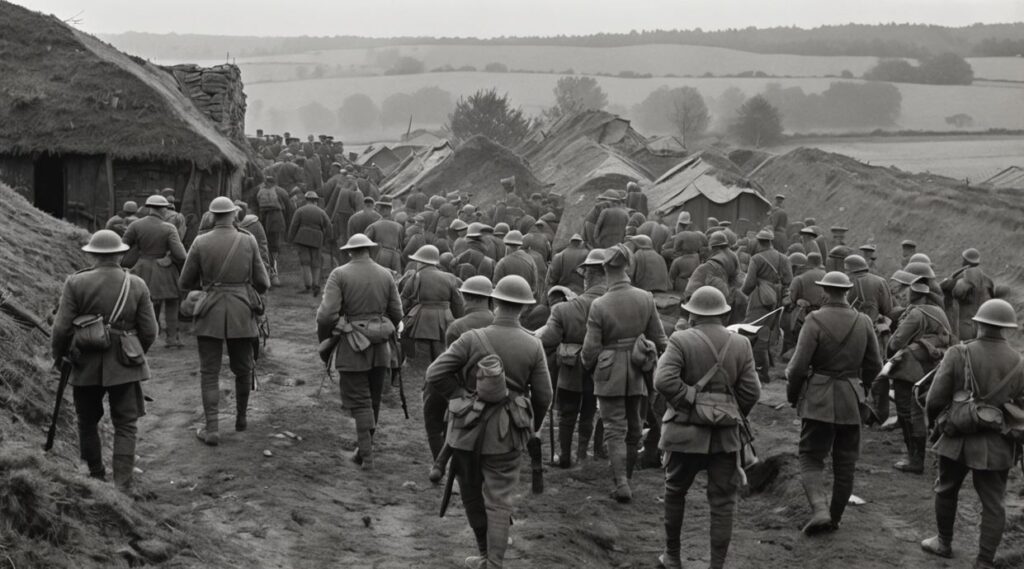
The early stages of the war were characterized by rapid German advances. This was only halted at the Marne before trench warfare took hold.
Without British reinforcements, French and Belgian forces would have faced increased pressure from German offensives.
France would have borne the brunt of German offensives.
Belgium, which had already faced occupation early in the war, might have endured prolonged occupation without British assistance. This occupation could have had significant economic, social, and political implications for both countries, altering their post-war trajectories and national identities.
This scenario could have led to a potential early victory for the Central Powers in the West. They could have exploited the absence of British troops to break through Allied defenses and reach Paris.
Alternatively, it might have prolonged the stalemate as both sides adjusted their strategies to compensate for the absence of British forces.
The Russian Front
On the Eastern Front, British neutrality would have influenced the dynamics of Russia’s war efforts against the Central Powers.
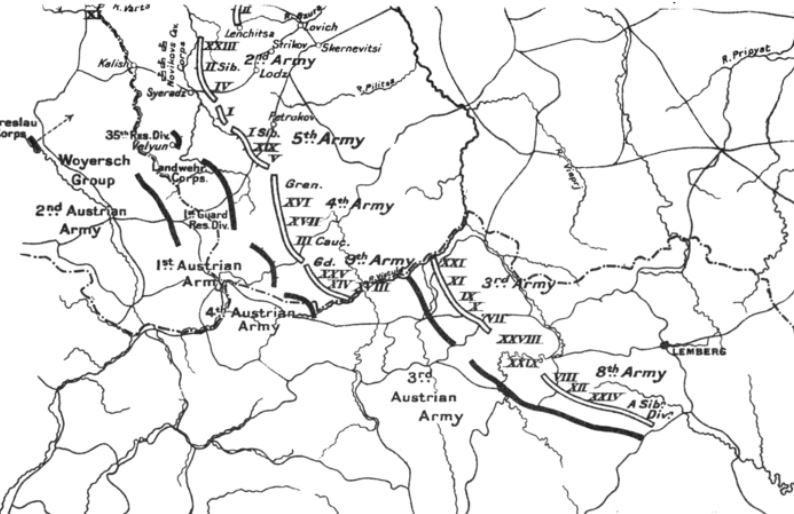
The absence of British support and supplies, which were critical in sustaining Russia’s war effort, could have weakened Russia’s ability to continue the fight.
Russia might have experienced more pronounced military setbacks and economic hardships, intensifying popular discontent and revolutionary fervor.
This scenario might have accelerated the pressures that eventually led to the Russian Revolution of 1917.
Without British aid, Russia could have faced earlier and more severe defeats, potentially undermining the stability of the Tsarist regime and hastening the revolutionary movements that ultimately brought about the downfall of the Russian monarchy.
The influence on the Russian Revolution would have been profound. The revolution was partly fueled by discontent over the hardships of war, exacerbated by military defeats and economic hardships.
4. Colonial Implications of British Neutrality in World War 1
Colonial Stability
If Britain had remained neutral in World War 1, its colonies would have experienced a continuation of pre-war stability.
The push for independence in many colonies might have been delayed, as the war acted as a significant catalyst for nationalist movements.
Without the war, the momentum for independence might have been slower to build, with colonial populations less motivated to challenge British rule immediately.
European Colonial Rivalries
The redistribution of German colonies among the Allies, which occurred after the war, would not have happened.
This would have maintained the pre-war colonial status quo, avoiding territorial changes that fueled future conflicts and instability.
Trade and Industrial Output
Britain’s economy would likely have experienced uninterrupted growth without the financial burden of war.
Colonial economies, heavily reliant on British trade, would have benefited from stable trade relationships without wartime disruptions. The economic growth would have been more consistent, promoting prosperity both in Britain and its colonies.
Resource Allocation
Resources that would have been diverted to the war effort could instead have been used for economic development in both Britain and its colonies. Investments in colonial infrastructure, such as railways, ports, and telecommunication systems, might have progressed more rapidly. This would have led to improved infrastructure and better economic conditions in the colonies, fostering development and growth.
Social and Demographic Changes
The massive mobilization and casualties of the war led to significant demographic changes.
Without the war, these changes would not have occurred, preserving pre-war social structures. Additionally, wartime disruptions led to large-scale migrations and demographic shifts. A neutral Britain might have seen more stable migration patterns, maintaining a more consistent population distribution.
Colonial Troops
Many colonies provided troops for the British war effort, leading to significant losses and social upheaval.
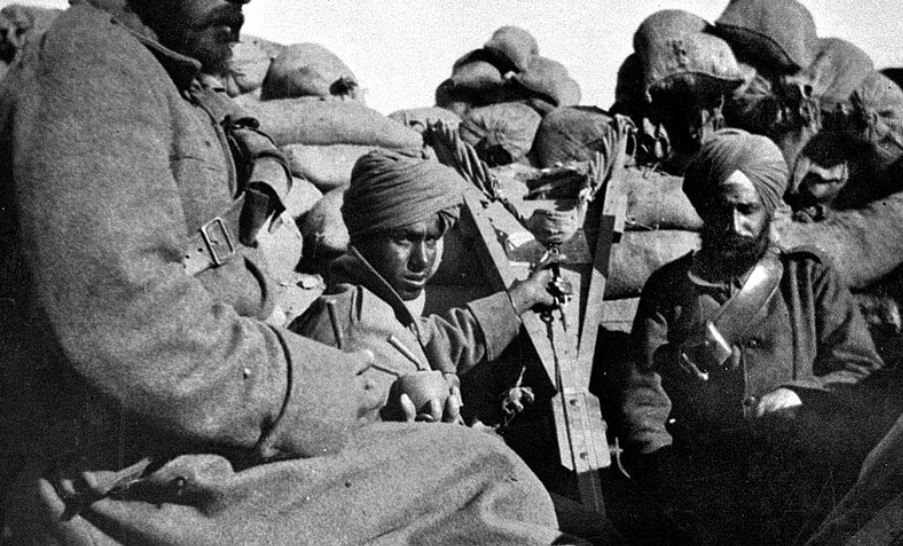
Without the war, these colonies would not have faced such demands, preserving their labor force and contributing to local economies. The colonial labor force would have remained intact, allowing for continued economic contribution and stability.
Geopolitical Shifts
A neutral stance in the war might have prolonged the British Empire’s dominance in global affairs.
The geopolitical landscape of the 20th century would have been different, potentially avoiding some of the conflicts that arose from the redrawn post-war map.
5. U.S. Involvement in World War 1
The impact of Britain’s neutrality on U.S. involvement in World War 1 would have been significant.

At the outbreak of war in 1914, the United States initially adopted a policy of neutrality, reflecting its desire to avoid entanglement in European conflicts.
Without British participation, it’s likely that American entry into the conflict would have been significantly delayed, if it happened at all.
The close cultural and economic ties between Britain and the U.S. were crucial in shaping American public opinion and policy. A neutral Britain would have removed a key influencer pushing America towards intervention.
Economically, U.S. ties to the Allies would have been far weaker.
In our timeline, Britain relied heavily on “deliverance from the United States” in terms of loans and supplies. Without this economic incentive, American industry and finance would have had less stake in an Allied victory.
The naval aspect of the war would have looked radically different.
British naval power and the subsequent German submarine warfare were key factors in drawing the U.S. into the conflict.
Without incidents like the sinking of the Lusitania, which occurred in the context of Germany’s attempt to break a British blockade, American shipping interests might have remained largely unaffected by the European conflict.
Moreover, the propaganda landscape would have been transformed.
Much of the anti-German sentiment that influenced U.S. public opinion was either generated or amplified by Britain. A neutral Britain might have resulted in a more balanced view of the conflict in American media and public discourse.
Ultimately, British neutrality could have led to a quicker resolution of the European conflict, potentially concluding before conditions arose that compelled U.S. intervention.
This alternate World War I, shorter and more contained, might have prevented the global upheaval that set the stage for World War II and shaped much of 20th-century history.
In this alternate timeline, the United States might have maintained its isolationist stance well into the 20th century/ This would have dramatically altered the global balance of power and the course of international relations for decades to come.
6. Long-Term Effects
Post-War Treaty
Had Britain remained neutral in World War 1, the landscape of post-war treaties and boundaries could have unfolded quite differently.
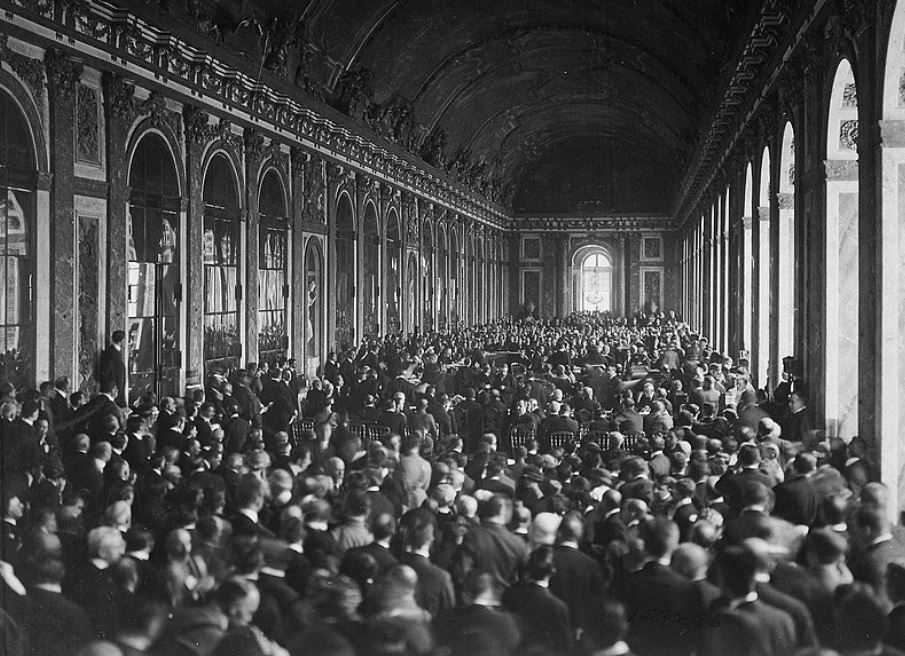
The Treaty of Versailles, which followed the war, imposed significant reparations and territorial adjustments on Germany, contributing to resentment and economic hardship that fueled future conflicts.
Without Britain’s participation, and with a shorter more contained war, the negotiations and outcomes of peace treaties might have been less punitive or structured differently.
There could have been a possibility of a more lenient treaty towards the losing nation, possibly avoiding some of the economic and political destabilization that paved the way for World War 2.
Rise of Fascism
The aftermath of World War 1 saw the rise of fascism in Europe, driven by economic crises, social unrest, and disillusionment with existing political systems.
The Treaty of Versailles and its repercussions played a crucial role in fostering conditions that led to the rise of totalitarian regimes in Italy, Germany, and Spain.
Had Britain not been involved in the war or had pursued a different diplomatic course, the trajectory of European politics might have been altered.
A less punitive peace settlement could have potentially mitigated some of the economic hardships and nationalist sentiments that fueled the rise of fascism in the interwar period.
Economic and Social Changes
Economically, Britain’s avoidance of wartime expenditures and economic strains could have positioned it differently in the post-war global economy. The immediate economic recovery might have been smoother, potentially leading to sustained growth and stability.
Socially, within Britain, the war had profound impacts on class structures and gender roles. Women’s participation in the workforce during the war laid the groundwork for expanded roles and rights in the following decades.
A neutral stance might have influenced societal norms differently, potentially slowing down or altering the pace of social change.
Moreover, the war had significant effects on the social fabric, with the trauma and loss experienced shaping cultural attitudes and national identity.
7. Ireland in a World of British Neutrality
In our alternate timeline where Britain maintains neutrality during World War I, the fate of Ireland takes a dramatically different turn.
The absence of British involvement in the European conflict would have profound implications for the Irish struggle for independence and the future of Anglo-Irish relations.
First and foremost, the postponement of Home Rule, which in our timeline was shelved due to the outbreak of war, would likely not have occurred.
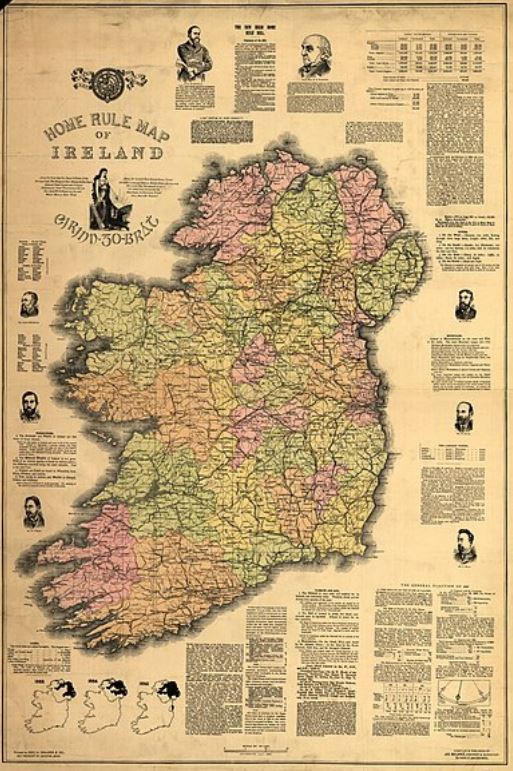
The Irish Parliamentary Party, led by John Redmond, might have succeeded in implementing the Third Home Rule Bill, granting Ireland a degree of autonomy within the United Kingdom. This could have set Ireland on a path of gradual, peaceful transition towards greater self-governance.
Without the distraction and strain of war, the British government would have had more resources and attention to devote to the Irish question.
The Conservative and Unionist opposition to Home Rule, which in our timeline used the War as a pretext to delay its implementation, would have faced a much tougher battle in a peacetime parliament.
The Easter Rising of 1916, a pivotal moment in Irish history, might never have occurred.
The war provided both the opportunity and the motivation for Irish republicans to stage an armed rebellion. In a neutral Britain, with Home Rule potentially already in place, the impetus for such a drastic action might have been lacking.
Furthermore, the brutal British response to the Easter Rising, which in our timeline turned public opinion in Ireland against British rule and towards the more radical Sinn Féin party, would not have happened.
The absence of this catalyst could have meant a continuation of constitutional nationalism rather than a shift towards militant republicanism.
The Irish experience in World War I, which saw over 200,000 Irishmen serve in the British Army, would also be erased from history. This shared experience, which in our timeline both united and divided Irish society, would not exist as a point of contention or pride.
However, it’s important to note that the underlying tensions and desires for Irish independence would not have simply disappeared.
The movement towards Irish self-determination had deep historical roots that predated the war. In this alternate timeline, these aspirations might have found expression through different means, perhaps leading to a more gradual and negotiated path to independence.
The violent struggle for independence might have been replaced by a process of incremental constitutional change. The Ireland of this alternate 1920s might look very different: still part of the United Kingdom, but with a high degree of autonomy, and without the scars of the Easter Rising, the War of Independence, and the Civil War that followed.
The ramifications of this alternate path would echo through the decades, potentially avoiding the bitter divisions that have characterized Irish politics and society for much of the 20th century.
8. Germany Ascendant in a New European Order
In our alternate timeline where Britain remains neutral during World War I, the balance of power in Europe shifts dramatically, with Germany emerging as the dominant continental force.
This new reality would have far-reaching consequences for the shape of Europe and Britain’s place in the world.
Without British intervention, Germany’s Schlieffen Plan might have succeeded. France, facing the full brunt of German military might without British support, could have fallen within months. Russia, struggling against both Germany and Austria-Hungary, might have sued for peace by 1916. The result: a swift German victory and a radically altered European landscape.
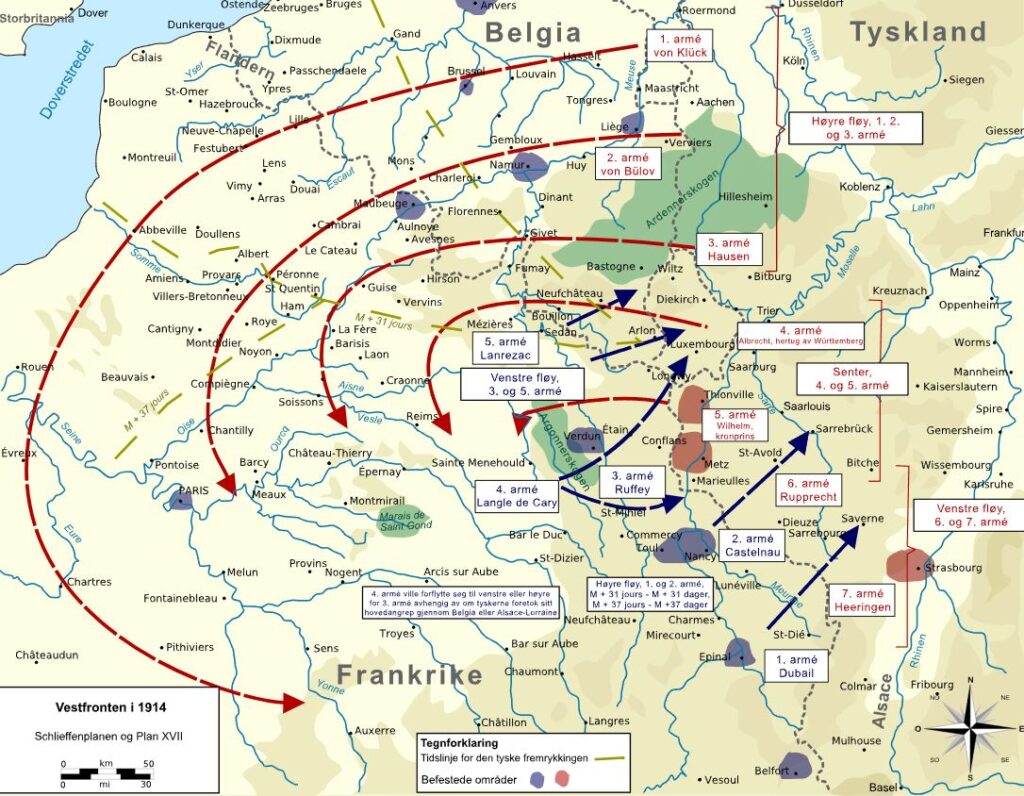
In this new Europe, Germany would stand as the undisputed hegemon.
The German Empire would likely extend its influence across much of the continent, either through direct annexation or the creation of client states.
Belgium and parts of Northern France might be incorporated into the Reich, while Eastern Europe could see the establishment of German-friendly regimes from the Baltic to the Black Sea.
Economically, Germany would be in a position to dominate.
The concept of “Mitteleuropa” – a German-led central European economic union – could become a reality. This economic bloc, stretching from the North Sea to the Mediterranean, would rival the British Empire in terms of resources and industrial capacity.
For Britain, this new continental order would pose significant challenges.
The policy of maintaining a balance of power in Europe, which had guided British foreign policy for centuries, would be in tatters. Britain would find itself facing a united, German-dominated Europe across the Channel – a scenario that British statesmen had long sought to prevent.
Diplomatically, Britain might find itself increasingly isolated.
With Germany ascendant, other European powers might gravitate towards Berlin rather than London. The British Empire, while still vast, could find its global influence waning in the face of a consolidated European power bloc.
Economically, Britain would face stiff competition. German industry, bolstered by access to continental resources and markets, could outpace British manufacturing. The City of London might find its position as the world’s financial center challenged by Berlin or Frankfurt.
However, Britain’s neutral stance during the war might have preserved its military strength and economic resources. This could allow for a period of rearmament and economic consolidation, potentially setting the stage for a long-term rivalry with Germany.
The absence of a prolonged, devastating war might also mean that the more extreme ideologies that arose in our timeline – communism in Russia and fascism in Italy and Germany – never gain traction. Instead, we might see a Europe dominated by constitutional monarchies and limited democracies, with Germany’s semi-authoritarian system as the model.
In this alternate world, the 20th century could be characterized not by world wars and ideological conflicts, but by a tense cold war between a German-led European bloc and a British-led colonial empire.
For Germany, this outcome would represent the realization of its pre-war ambitions.
No longer encircled by hostile powers, Germany could focus on consolidating its position as a world power. The German language and culture might become dominant across Europe, with Berlin replacing Paris as the continent’s cultural capital.
9. Final Thoughts: Was Britain Right to enter World War 1?
As I reflect on the alternate history we’ve explored throughout this blog, I can’t help but grapple with the complex question: Was Britain right to enter World War 1? After careful consideration of the potential outcomes of British neutrality, I’ve come to a somewhat controversial conclusion – Britain’s entry into the war was a tragic mistake with far-reaching consequences.
First and foremost, British involvement transformed what could have been a contained European conflict into a global catastrophe.
Without British participation, the war might have ended much sooner, potentially sparing millions of lives and avoiding the devastating economic and social upheaval that followed.
Moreover, Britain’s intervention ironically accelerated the decline of its own empire.
The financial strain of the war, coupled with the awakening of nationalist sentiments in the colonies, set in motion the eventual dismantling of British imperial power. A neutral Britain might have preserved its global influence for decades longer.
The Irish question is particularly poignant.
Our exploration of an alternate timeline suggests that without the distraction of war, Britain might have peacefully implemented Home Rule, potentially avoiding the violent struggle for independence and the bitter divisions that plagued Ireland for much of the 20th century.
Perhaps most significantly, British involvement laid the groundwork for an even more catastrophic conflict – World War II. The punitive Treaty of Versailles, which Britain played a role in shaping, created the conditions for the rise of fascism and another global war just two decades later.
However, I must acknowledge the moral dimension of this decision. Britain’s commitment to Belgian neutrality and its desire to check German expansionism were not without merit. There’s an argument to be made that standing up to aggression was the right thing to do, regardless of the consequences.
Yet, when I weigh the potential benefits of neutrality against the actual outcomes of involvement, I can’t help but conclude that Britain’s entry into World War I was a miscalculation of historic proportions.
A neutral Britain might have been better positioned to mediate a less punitive peace, prevent the rise of extremist ideologies, and maintain a balance of power in Europe without the devastating costs of total war.
In the end, this exploration of alternate history serves as a sobering reminder of how pivotal decisions can shape the course of global events in unforeseen ways. While we can’t change the past, we can learn from it. The lesson I draw is that military intervention, even with the best intentions, can lead to consequences far more dire than the problems it seeks to solve.
As we face our own global challenges today, perhaps we would do well to remember the unforeseen ripple effects of Britain’s fateful decision in 1914, and approach international conflicts with a greater emphasis on diplomacy, mediation, and a careful consideration of long-term consequences.
Further Reading
I hope you have found this blog post about What If Britain Remained Neutral in World War 1? interesting. To find out more about World War 1, read here:
- The Haunting Russian Zombie Legends of World War I
- White Friday: A WW1 Tragedy on the Italian Front
- Militarism, Alliances, Imperialism, Nationalism: The MAIN causes of WWI
- Germany’s World War 1 Turnip Winter
- Did Any Civil War Veterans Serve in World War 1?
You may also enjoy these articles exploring ‘What If’ scenarios:

